Neal Purvis and Robert Wade are one of the UK's most successful writing partnerships. They talk to Star of Tomorrow Peter Harness about scripting Bond, working with Robert Rodriguez and knowing when a script is finished
Peter Harness: When did you start writing together'
Neal Purvis: We started writing in 1984. Let Him Have It came out in 1991. And our second credit, Plunkett & Macleane, came out in 1999. So that's two credits in 15 years. You'd have never have carried on if you'd have known that.
Harness: How did you keep at it until your first job'
Robert Wade: We were signing on. We got quite good at doing that. You could get your rent paid so we lived quite well. Then we started writing pop promos for directors who needed inspiration.
I remember the first agent we had saying something like the hit rate for getting a feature script made into a movie is one in ten so you have to write 10 movies to get one made. We thought, Oh God, that's impossible! But when it came to it, she was bang on. We've been fortunate. Nearly everything we've written since then has been made. But that was the hit rate and that is a terrible statistic and it would put anyone off. You can't go into it with that knowledge.
Purvis: The Brian Jones script [which became Stoned] took 14 years.
Harness: So how did you carry on'
Wade: It helped having a writing partner. I think it's very difficult without someone whom you can blame for your continued lack of success. I hate to say this as you are working on your own but it is particularly hard to keep your sanity. As part of a pair you are less personally invested in it because from the start it's collaborative and the difficulty with screenwriting is that the script is nothing - it is an intermediate stage to a finished product but it is very difficult to write a screenplay and not to feel that you are creating it.
And yet often it is going to be handed to a director who is going to tear it apart and not understand it. And then when they put it back together, they will see it as their process, their creation. When there are two of you, you are able to be less personally horrified. You can let go of it more. Then again, some directors get intimidated by working with a writing partnership - whereas as a solo writer you do get to talk to the director a lot more. We tend to discuss ideas and scenes with each other more than the director. But when you're working alone, you need someone else to bounce off and that will be the director.
Purvis: With two of you, you can come out of a meeting and ask, 'Did you understand any of that''
Wade: And if things go well, you have someone to share that with.
Purvis: And in America, you have someone you can have a drink with. Otherwise you're hanging around bars on your own.
Wade: The first time we went out to America was to work with Tony Richardson: he was originally going to direct Let Him Have it. It was bizarre because we had written it, this depressing rainy Croydon story and before we knew it we were staying in Eartha Kitts' house in Beverly Hills, having lunch with Tony Richardson - and he had a swimming pool on either side of his house. We were insulated from the studios.
Purvis: But we weren't there to pitch ourselves.
Harness: Have you ever done that'
Purvis: Oh, it's awful. You have a timetable. When you've done one, you have to jump back into the car and race to the next one. On another trip somebody paid for us to go out and they put us up at the bottom of someone's garden in a grandmother unit. And that was in a rather unpleasant part of town where there was a lot of
Wade: Gunshots.
Purvis: You could hear them coming toward you in the middle of the night. Like thunder.
Wade: We were pitching a film about someone in a coma and we are so bad at pitching. It's like saying the word yawn makes people yawn. So we're pitching to people and they're almost falling asleep.
Purvis: The pitch would be 10 minutes long and you could see they didn't like it within two minutes, but you had to carry on. This happened in England too. We were pitching the same idea to a producer and his development woman who had just come back from lunch. You could see she was getting a bit tired. She put on dark glasses and went to sleep. And we were still talking!
Wade: That is what you are supposed to do because if you don't have anything to sell, what's the point of the meeting' It is very difficult, because if you are British, you are not energetically throwing ideas out. We're more reserved. In the US, they're used to people who jump around the room.
We're terrible at it. But here's an odd thing: they are interested in you because you are British and you sound educated and intelligent to them because of the accent. There are a few writers who trade on that - they wear tweed jackets with leather patches.
Purvis: Get yourself some plus fours and you'll sail through it.
Harness: Which is the easier environment to work in, the UK or the US'
Wade: They work much harder in Hollywood. They'll meet over the weekend. They'll just work flat out the whole time.
Purvis: Sunday morning meetings around at somebody's house are normal. But the other thing is that everything happens very quickly in Hollywood and you get a real sense that things are going to happen on your film. In the UK everything seems to take a long time. It's made clear from the start that you're in for the long haul. The other thing is you have some cachet if you don't live in Los Angeles. People move aside meetings to see you because they know you won't be there all the time. It does make you a little more interesting.
Harness: How did you get offered the first Bond film, The World Is Not Enough'
Purvis: We were fortunate that the producers [Barbara Broccoli and Michael G Wilson] were looking for new writers after Tomorrow Never Dies because that was very action oriented and they felt it had lost a little bit of its way and they wanted to put a bit more drama into it.
Wade: We were asked to come into meet them because their development person was a fan of our draft of Plunkett & Macleane. The first time we met them we didn't know the meeting was about Bond. It meant that we genuinely didn't have any ideas at the first meeting so we didn't lose the job straightaway.
Purvis: And we made them laugh.
Wade: We got on quite well with them. We came back with some ideas, including that Thames chase in The World Is Not Enough and the female villain. And after another meeting with the studio people it seemed as if we hadn't got the job. We felt that it hadn't gone well. We went and had a despondent curry. But our agent spoke to them a couple of days later and they wanted us to come out to America in a few weeks and start writing it.
Purvis: Normally when you meet people you get fobbed off if no one in that company has met you before. We thought we would meet someone who would vet us and maybe then meet the bosses. But we were shown to their giant office
Wade: Their lair.
Purvis: It was huge. Eighteen-foot-high ceilings. Not like the British film industry at all. That's what's great about Barbara and Michael. They do everything on a personal basis. They meet you. They talk to you. And if we hadn't met them and they hadn't laughed, we may not have got the job.
Harness: Was it harder or easier to negotiate a percentage' The Bond films are a guaranteed money-spinner.
Wade: You don't get a percentage precisely because of that. It is dangled on other projects because on all other projects, they probably won't succeed. But with Bond, because it is probably going to make money, they don't do that for anybody - not the actors, and particularly not the writers.
Harness: It's part of a writer's lot that they'll be rewritten at some stage. How do you find it from both sides'
Wade: You can never tell who has written the film by what's on the final credit. When it comes to the Writers' Guild, arbitrate sometimes equals arbitrary. We have had a couple of instances when our names were bumped off. That is frustrating because if you are responsible for something but were bumped off it and it turns out to be a hit then the person who's on the credit is the person who the people in Hollywood think did it. As far as rewriting other people, sometimes you've gone as far as you can or want to go with the project. You can get stuck on a story.
Purvis: We had a good experience on Johnny English. We had a lot of fun writing it but then we had to go off to do something else and Will Davies took over and did a good job. It all really depends on whether it's a bloodbath or not.
Harness: What's the key to a good working relationship between a writer and a producer or director'
Wade: Certain producers stick with the same writers and don't change them. It's a shame more directors don't. With directors, honesty helps. And confidence. A lot of directors are secretly lacking in confidence. They don't trust everyone around them and as a writer you become a victim of that.
Purvis: They often have the attitude that they are right even when they are wrong. We started very well with Alex Cox and Tony Richardson who were both involved with Let Him Have It at various stages of its development. As a writer, you're always trying to learn and improve and there are not that many directors you learn from.
We get along better with producers than with directors really because they are the ones who slave away for years to get a thing made. Directors are the stars of the show but it's the producers who gets things made.
Harness: What is the best way to develop a script'
Purvis: We work mostly with the producer and the director on the development of a script. We don't work with the development people. Sometimes I feel that people never really know when to stop developing. It's sometimes a lot to do with choosing the right time to make the film.
Wade: I agree. You get to a point where the script is good and you can work a hell of a lot more on it and it will only get a little bit better or it could lose what it had.
Purvis: When it starts going down, it is hard to get it back.
Wade: I think that's right. Sometimes a script can be overdeveloped. Yesterday I accidentally found a draft of Johnny English - draft number seven - and it was really funny, you could have shot that version. And yet that was a mid-point. And everyone is striving to make a masterpiece. Our experience at the moment, with Barbarella which we're doing with Robert Rodriguez, is interesting.
Purvis: He works very quickly.
Wade: And [producer] Dino De Laurentiis wants it to happen quickly, to shoot later this year and release it next year. There's fantastic momentum on the project and everything is happening very quickly.
Purvis: Let Him Have It was written in three weeks. If you have a clear idea of what you're doing, it shouldn't take that long. If you planned it out and researched it, with a little bit of luck
Harness: You're doing the Barbarella remake. You did The Italian Job remake. And you got offered a number of other remakes. Getting pigeonholed must be a bit frustrating'
Wade: We got sent spy stuff all the time. There are a couple of projects we want to do that would hopefully change people's perception of us as writers. One is an almost silent movie about Corsican mafia. It's very different from anything we have ever done. But it's about trying to find the time to do it. When you are being paid, you owe it to the people paying you to give them your best.
Harness: You co-produced Stoned. Why did you take on that role'
Purvis: We are trying to move into that area, the area where you can tell people what to do.
Wade: It's about being able to have more of a say.
Harness: Did you read a lot of the books around about how to write screenplays'
Purvis: We've never really used any of them.
Wade: We don't know whether we are doing three or five act structure. Those books are useful when you're a bit lost. They're there to keep you going. But I don't think they tell you that much. I didn't want to do the Robert McKee classes because I don't want to pollute my mind with it. Everyone I know who has done them says they're great but if everyone learns the orthodoxy, then everything is measured by it.
Harness: What's the best bit of advice you've picked up'
Purvis: Tony Richardson said you should put films you like into films you write. I don't mean directly lift things. I mean if you liked a particular scene, try to recreate something similar. And that way you don't feel guilty about stealing things. That's why you liked it in the first place.
Wade: We've always thought if you're writing a script and you can't retain the whole thing in your head, then maybe it isn't right. Or if there is a bit you keep forgetting, then maybe it shouldn't be in there. At the beginning, we would slavishly craft descriptive sentences but in the end you're going to rewrite it anyway. You get married to something because you put all that work into it. But suddenly you get that liberated feeling - you ditch it and suddenly everything works. The waste of effort was worth it.
Purvis: But the best advice is 'finish it'. Because you can't start re-writing it unless it's finished.




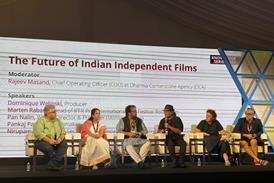
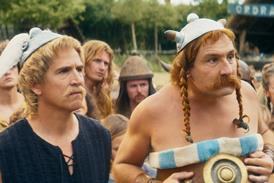

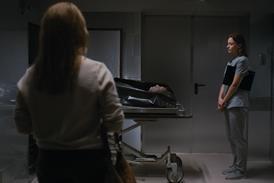




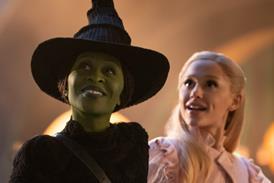
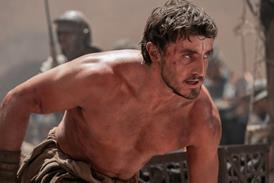




No comments yet